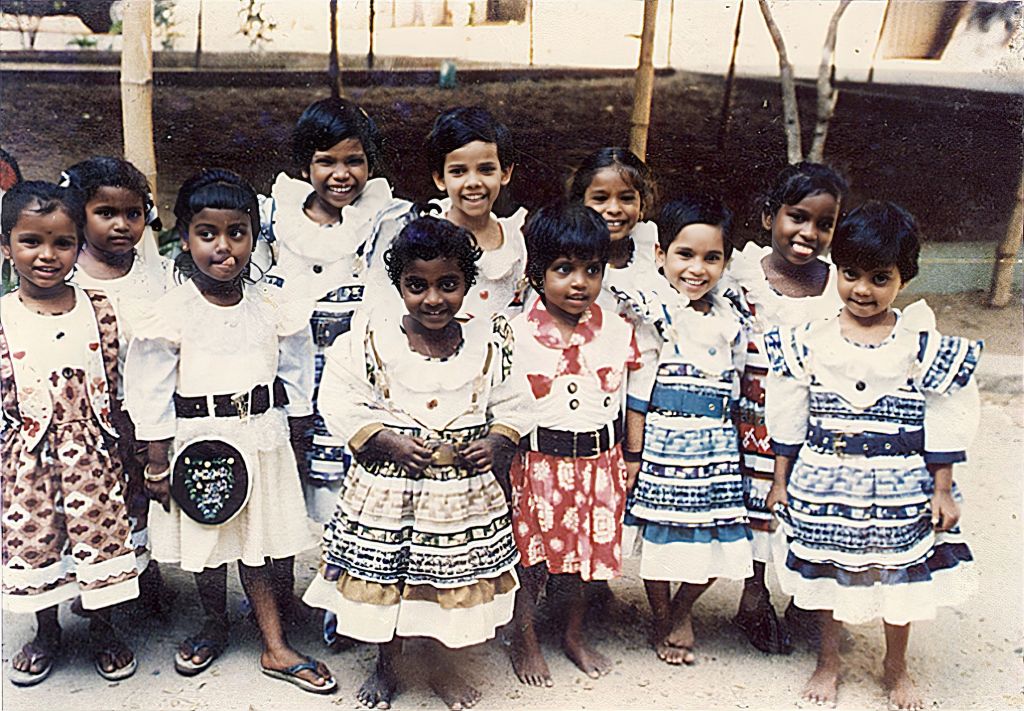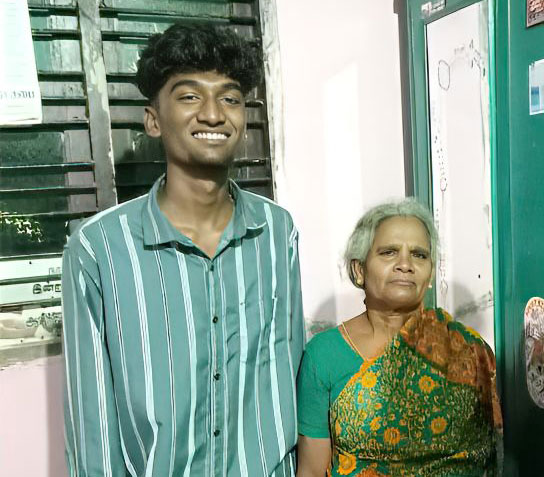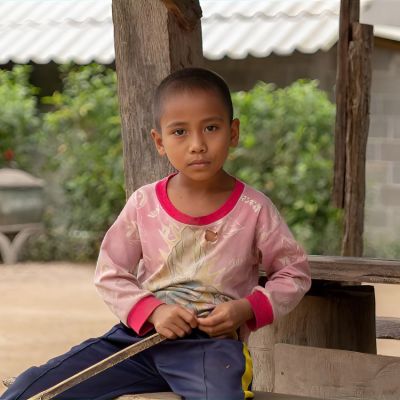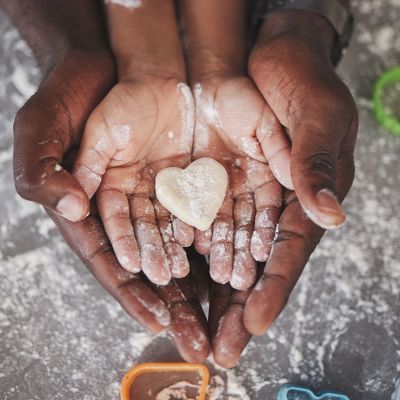Written by Clara Chiu (Head of Partnership Development)
Start children off on the way they should go, and even when they are old they will not turn from it.
Proverbs 22:6
Written by Clara Chiu (Head of Partnership Development)
‘Start children off on the way they should go, and even when they are old they will not turn from it.’ (Proverbs 22:6) This bible verse is probably very familiar to many of you. As Christians, when we hear this verse, we think of the Bible’s teaching that parents shall discipline their children according to the will of the Lord so that their children can walk in the truth of the Lord throughout their lives.
This bible verse is probably very familiar to many of you. As Christians, when we hear this verse, we think of the Bible’s teaching that parents shall discipline their children according to the will of the Lord so that their children can walk in the truth of the Lord throughout their lives.
Unfortunately, many children in this world are left behind by their parents, let alone the privilege of being brought up with the utmost care and taught about the truth of God. The United Nations Children’s Fund (UNICEF) estimates that in 2022, 105 of every 100,000 children were separated from their parents and lived in children’s institutions.
Furthermore, children living with their financially burdened families face substantial challenges in accessing educational opportunities. If we look at the countries where CEDAR have set up educational programmes for children—India and Bangladesh, a sizeable proportion of children who lived with families suffered from poverty. According to the data provided by UNICEF in 2020, 27.4% of children in India and 26.7% of children lived in families with income below the national poverty line.
These distressing conditions meant that the responsibility to care for and educate children could no longer be rest solely on the shoulders of parents and their original families. Therefore, many charities have sought public support to help impoverished children. The most typical form of public participation is through donations of ‘one-to-one’ student aid or child sponsorship. The popularity of this model among poverty alleviation agencies could be explained by its strength in providing long-lasting and stable support to the sponsored children with a strong bond and monthly donations.
However, with years of experience and dedication in development work, CEDAR believes that improving the overall condition of the community is more conducive and sustainable to the development of children. Therefore, as we continue to enhance our children’s ministry strategy, we deliberately reduced child sponsorship programmes and replaced them with programmes that assist the internal development of communities and subsequently enable them to support the holistic growth of their impoverished children, which includes: providing quality education, protecting of children’s rights, promoting children’s health and cultivating social responsibilities, which brings a more profound and long-lasting transformation to their lives.
While ‘one-to-one’ child sponsorships are no longer CEDAR’s approach to help impoverished children, the effectiveness of this type of children’s ministry work cannot be negated. In this issue of SHARE, let us review this student aid sponsorship programme, which concluded at the end of June this year and witness God’s grace throughout the years.
The Transformation of India’s Impoverished Children
In its early years, CEDAR had funded an Indian partner called ‘Christian Missions Charitable Trust’ (CMCT) through student aid. We supported their children’s ministry since 1995, a cooperation lasting nearly 30 years. CMCT was founded by a New Zealand missionary who responded to the Lord’s call in 1964 and came to the southern Indian state of Tamil Nadu to serve, which marked the beginning of CMCT’s ministries.

India is a country with a large population. Yet, employment opportunities are in significant shortage compared to its population. According to the Economic Times, India’s national unemployment rate rose to 8.11% in April 2023 from 7.8% in March, which was the highest since December last year. The urban unemployment rate also escalated from 8.51% to 9.81% within the same period, while the unemployment rate in rural areas dropped slightly from 7.47% in March to 7.34% in April.
Our partner reported mass unemployment’s extensive and profound impact on family ties and relations. The frustration and desperation of unemployment led many fathers to alcohol addiction and neglect their families, where they use the income earned by other family members to buy alcohol and drugs. With increasing economic pressure, many families borrowed money from their neighbours to make ends meet, let alone send their children to school. Consequently, children become major victims of mass unemployment, who lose their educational opportunities and become child labourers or marginalised teenagers.
Moreover, poverty led many impoverished families to live in simple, crude houses built without government permission, sanitary facilities and water supply. The areas where these impoverished families live are called slums. For children living in slums, ‘survival’ is paramount, and reading and literacy is a dispensable ‘luxury’.
Therefore, CEDAR partnered with CMCT to respond to the needs of impoverished children and their families in India. By paying school fees for children and providing school essentials, such as school bags, school uniforms, shoes and books, as well as toiletries, underwear and nutritional drinks and working with CMCT-affiliated hospitals to provide annual physical examinations and health support, we hoped to care for children’s educational and health needs comprehensively. Further, we organised monthly activity days and summer faith exploration gatherings to provide opportunities for children to reflect on their lives, strengthen their social skills, and promote whole-person development.

A Shimmering Path of Hope in the Dark
Abraham lost his mother when he was 10, and his father left him after remarrying. Since then, Abraham lived with his grandmother in a crude thatched hut. His grandmother worked as a domestic helper and earned barely sufficient income to meet the family’s expenses. She was worried about her grandson’s tuition fees. Hereafter, Abraham’s grandmother heard that a school under CEDAR’s partner could provide educational subsidies for children in need, so she went for help. After sending a social worker to learn about Abraham’s situation, our partner referred him to a student assistance programme funded by CEDAR. After receiving the financial aid, Abraham made new friends at school, expanded his social circle, and gradually became more comfortable around others rather than relying on his grandmother. In addition, the support has eased his grandmother’s burden, and she can finally breathe a sigh of relief and live an easier life.

Abraham has been studying hard and is currently studying for a bachelor’s degree. This was unimaginable for his family, but his dream came true under CEDAR’s student aid programme.
In three years, Abraham will graduate and enter the workforce, where he will be able to take care of his grandmother. CEDAR’s partner described that CEDAR and CEDAR’s supporters have become a beacon of hope for these children and families, shining the light of hope into their dark lives and enabling them to see the path of hope.
CEDAR’s partner’s loving actions demonstrates God’s mercy and grace. In addition to assisting students, our partner also provided food and daily necessities to impoverished families, gave birthday gifts to assisted students, and organised Bible classes for children so that they can learn the words of the Lord. These actions conveyed the love of God to them and profoundly changed these families. Some families joined the local church after knowing faith.
It is Time for Graduation
CMCT provides financial support to school-aged children until they graduate from college or complete vocational prerequisite courses. In 2021-2022, 80% of the 204 students sponsored by CEDAR found employment after graduation, and in 2022-2023, 90% of the 124 students sponsored by CEDAR found work, with the other 10% taking career training courses. The number of recipients decreased in 2022-2023, as it is time for this 28-year project to ‘graduate’. As mentioned at the beginning of this article, CEDAR hopes to allocate resources to benefit the entire community so that children receive help in a comprehensively transformed community. Therefore, we started discussing with our partner two years ago and developed a two-year exit plan (from July 2021 to June 2023) to equip our partner and sponsored children. From this discussion, we collectively decided to reduce the number of recipients gradually in the final stage of the project, which ensures that our partner had sufficient time to search for local resources, as well as the application of corresponding measures for primary, secondary and college students according to the exit plan to continue their educational journey.

While CEDAR has withdrawn from the student aid project with CMCT, we are both grateful that we have transformed the lives of many impoverished children through the decades. They can thrive and become a channel for blessing the next generation. We cherish our many years of working together. May our Lord continue to protect our partner and bless their ministries so that they glorify God and benefit His people.
CEDAR will continue to carry out more community-based projects to care for the children in need. We sincerely ask you to keep us in your prayers and watch over us. May the Lord give us wisdom, ability and resources to help more children and their families and let more people experience the blessings and benefits of knowing God.
ARTICLES OF THIS ISSUE
Written by Clara Chiu (Head of Partnership Development) Start children off on the way they should go, and even when th…
Written by Rebecca Lee (Programme Consultant) When we speak of ‘children’s ministry’, the provision …
Written by Samuel Ip (Intern) The notion that our planet is in a state of decline is no longer a foreign concept. As w…
Written by Dr. Kevin CHENG Shun Kai (Former professor of Theology and Ethics at China Graduate School of Theology) Scr…






